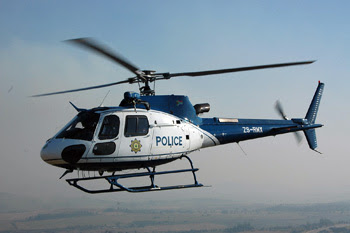http://www.guardian.co.uk/
South Africa's fearsome record for robbery, murder and rape may be the single biggest challenge facing organisers of next year's soccer World Cup. With one of the world's highest rates of violent crime, South Africa needs to not only protect the fans when they arrive but convince them it is safe to make the trip in the first place.
About 50 people are murdered a day -- more than in the United States, which has six times South Africa's 50 million population. There were officially 36,190 rapes in 2007-2008 and 14,201 carjackings, but many crimes go unreported.
Organisers have dismissed the fears, pointing to South Africa's good record in protecting increasing numbers of foreign tourists, its staging of many successful international events and a huge police effort to safeguard the event. Police strategy will be based on techniques honed during the 2002 World Earth Summit, which involve saturating areas including hotels, stadiums and transit routes with at least 41,000 specially deployed officers.
Police strategy will be based on techniques honed during the 2002 World Earth Summit, which involve saturating areas including hotels, stadiums and transit routes with at least 41,000 specially deployed officers.
"We are preparing ourselves for a worst-case scenario or any eventuality...although we have the framework in place, we must deal with issues as they present themselves," said Police Senior Superintendent Vish Naidoo who leads the 2010 team.
The government is spending 1.3 billion rand ($162 million) on the effort, which includes new helicopters, surveillance equipment -- including unmanned drones -- vehicles and body armour. Around 700 officers will patrol every stadium in addition to an army of private security guards, Naidoo said.
Around 700 officers will patrol every stadium in addition to an army of private security guards, Naidoo said.
However, crime statistics, albeit improving slowly, leave questions about what may happen outside the venues, if visitors stray away from protected areas.
A security consultant working with the organisers, who asked not to be named, said opportunistic local criminals were unlikely to target well-protected areas but look for weaknesses outside the security cordon.
Organisers warn that visitors must be vigilant despite the police effort.
 "We ask people to be on the lookout for anything...we are not going to guard people in their cars and in their rooms, but our police officers will be present to help," said Rich Mkhondo, spokesman for the local organising committee.
"We ask people to be on the lookout for anything...we are not going to guard people in their cars and in their rooms, but our police officers will be present to help," said Rich Mkhondo, spokesman for the local organising committee.
Many South Africans remain sceptical, complaining that police are often too slow to respond to the existing crimewave.
In the big cities where crime is rife, the presence of private security companies is far more evident than that of the police. Homes are surrounded by a daunting array of razor and electric wire and protected by heavily armed private response units.
"We are wishing on the stars when we say that we are ready...we have adequate police, but they are too lenient and take bribes," said 20-year-old student Nadira Abdul-Rahim. Crime is recognised as one of South Africa's most urgent problems and new President Jacob Zuma has vowed to toughen both the police and judicial systems.
Crime is recognised as one of South Africa's most urgent problems and new President Jacob Zuma has vowed to toughen both the police and judicial systems.
Clearly a special effort will be required during 2010 if South Africa's reputation is not to be irrevocably tarnished. The presence of comparatively well-heeled foreign fans could be seen as a golden opportunity for criminal gangs.
World Cup organisers have launched marketing campaigns overseas to lure visitors and counter crime fears. Signs so far are that the fans are not deterred.
Danny Jordaan, chief executive of the organising committee, has rejected fears about crime, pointing out that his country has held more than 140 events, including a cricket and rugby World Cup, since the end of apartheid in 1994.

0 comments:
Post a Comment